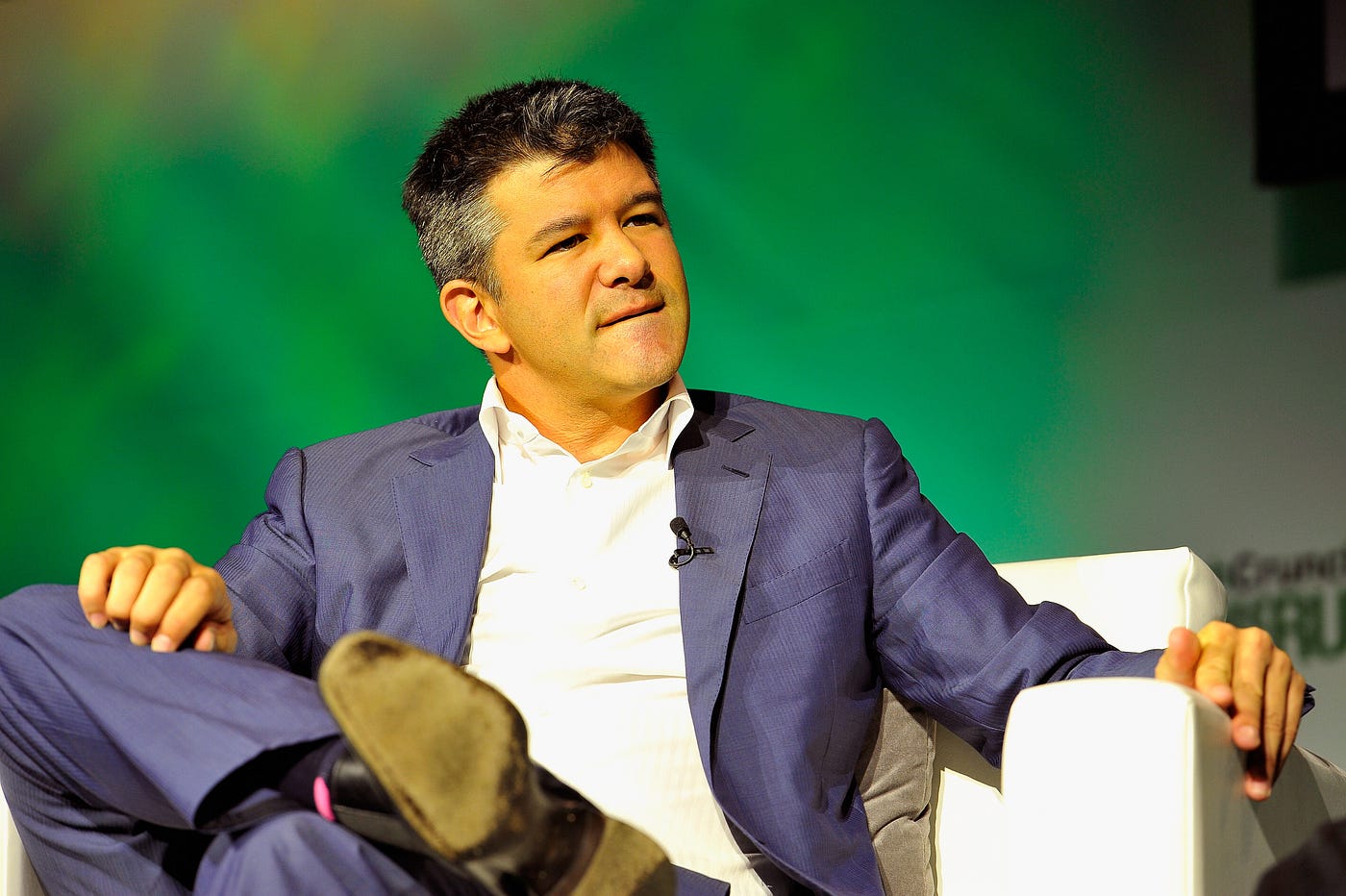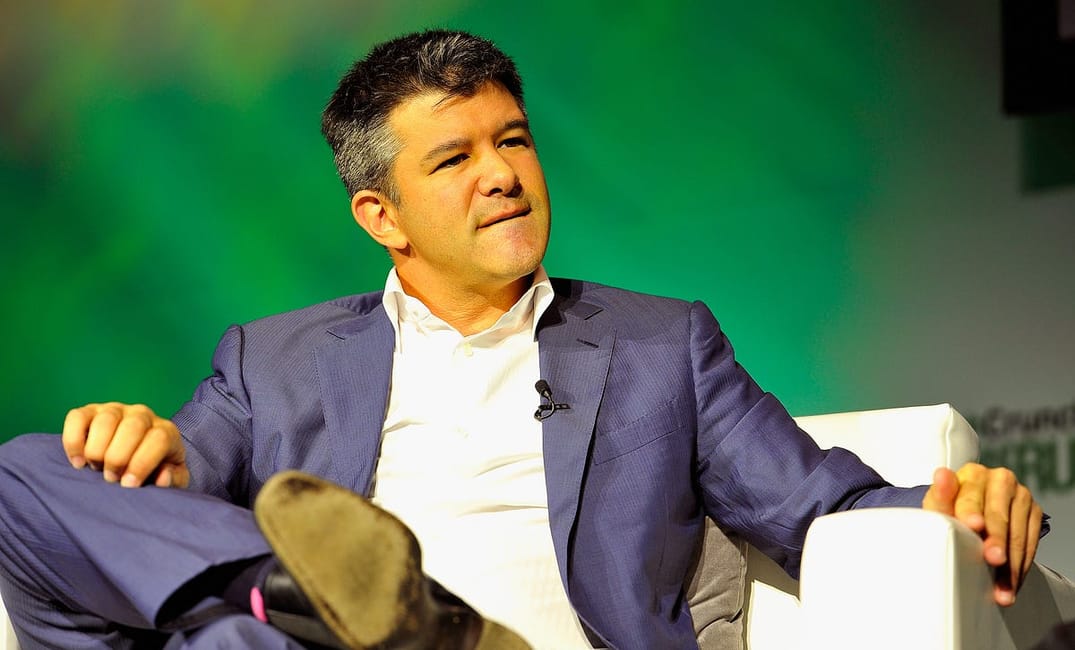
Uber’s sexual-harassment scandal and ex-CEO Travis Kalanick’s reaction to Trump’s Muslim ban revealed a troubling — yet not altogether surprising — quality of Bay Area liberals: they’ll punish gig-economy companies that don’t stand up for the rights of women and minorities unless that involves challenging the economic exploitation that those companies are built upon. Because…you can’t argue with the market?
Uber’s users could similarly use their collective purchasing power to force the company to treat its “independent contractors” fairly, yet Uber users have never had a strong response to the often-horrifying reports about the mistreatment and exploitation of drivers.
The Uber consumer revolt that exploded on social media — with more than 200,000 people deleting their accounts following Uber’s decision to remove surge pricing on trips to JFK airport — showed the power of collective action. The #DeleteUber campaign was arguably the first in a series of missteps that led to Kalanick’s resignation.
Ostensibly, Uber’s users could similarly use their collective purchasing power to force the company to treat its “independent contractors” fairly, yet Uber users have never had a strong response to the often-horrifying reports about the mistreatment and exploitation of the company’s drivers.
In a survey of the on-demand economy, Pew Research found that people who use ride-hailing apps tend to be urban college grads, ages 18–29, who earn more than $75,000 a year. Whether liberal or conservative, they believe that ride-hailing companies should not be subject to the same regulations as taxi companies because they believe Uber’s and Lyft’s assertions that they’re software platforms, not transportation companies. An overwhelming majority of ride-hailing users agree that such services “save users time and stress” and that they provide “good jobs for those who want flexible hours,” which illustrates how users believe the claims that Uber makes rather than the reported experiences of the company’s drivers.
Pew’s findings paint a damning picture of ride-hailing users. Many are professionals who have benefited from the tech boom and earn salaries that place them in the upper part of the middle-income bracket, if not above it. It’s safe to assume that many Uber users in the Bay Area work in tech, finance or other sectors in which, along with their good salaries, they get plenty of perks and benefits. The same can’t be said for the people who drive their Ubers and Lyfts or deliver their food through Instacart and UberEATS.
Workers in the gig economy lack any of the stability or dependability of the people who use on-demand services, or even of workers in many traditional service jobs. Because they’re independent contractors, they have no wage protections, no minimum or maximum working hours, no sick pay, no vacation and no benefits. Even though Uber claims its drivers can work whenever they want, that isn’t the reality. If they want to make decent wages, they have to work at peak times. Uber keeps slashing its rates and pushing its users into uberPOOL, which forces drivers to spend more time on the road just to maintain their earnings. And that’s before vehicle expenses are factored in, which drivers have to pay themselves.
Uber doesn’t deserve praise for giving people a “job” by revoking all of their employment rights and saddling them with the bulk of operating costs. The economy is fundamentally broken and doesn’t serve the needs of the most vulnerable and disadvantaged people in society.
It’s easy to say that if people don’t like working in the gig economy that they can simply get another job, but that ignores the dire realities that many of those workers face. Often, the reason they’re driving for a ride-hailing service is precisely because they can’t find any other work or because their job doesn’t pay enough — remember, wages have been stagnant for 40 years — so they treat the gig economy as a last resort. That doesn’t mean Uber deserves praise for giving people another option by revoking all of their employment rights and saddling them with the bulk of the operating costs. It means that the economy is fundamentally broken and doesn’t serve the needs of the most vulnerable and disadvantaged people in society.
I can already hear the objections of many Bay Area liberals claiming that the gig economy is the market’s response to the transportation industry’s lack of innovation and they’re just using what’s most convenient — or something like that. But the truth is that not only do they, as the primary users of these services, have the power to push gig-economy companies to change, but also they’re working for the very companies that are contributing to the uneven economic development taking place across the country.
Many of the users who participated in the #DeleteUber campaign didn’t swear off ride-hailing services; rather, they moved to a different one. Lyft took advantage of Uber’s misstep to present itself as the more ethical ride-hailing app, despite the fact its business model is also dependent on exploiting its drivers and denying them basic employment rights. But that was fine for liberals who rightfully oppose Trump’s racist immigration politics yet seem to not care about how the drivers who chauffeur them around are treated.
Bay Area liberals must realize that the goal of equal rights for women and minorities can never be achieved while they ignore economic inequality. The distribution of income and wealth plays a significant role in determining where power lies in society, and the only way that that dynamic will change is by challenging the economic system and the inequalities it generates.
Instead of spreading opportunity and freedom, as its propaganda wants us to believe, the gig economy is eroding the economic rights and protections that exist for women, minorities and those who are struggling in the current economy, where wages are low, work is precarious and jobs are harder and harder to find. In such an environment, campaigns to increase the representation of certain groups or achieve equal pay some time in the distant future are not sufficient.
Liberalsneed to recognize that the causes of equal rights for women, LGBTQ folks and minorities that they support are directly linked to the fight against economic inequality—and that includes exploitation by the gig-economy apps they use each day. Equal rights will never be achieved in an economy with massive inequalities, and liberals are more than welcome to join the cause.







